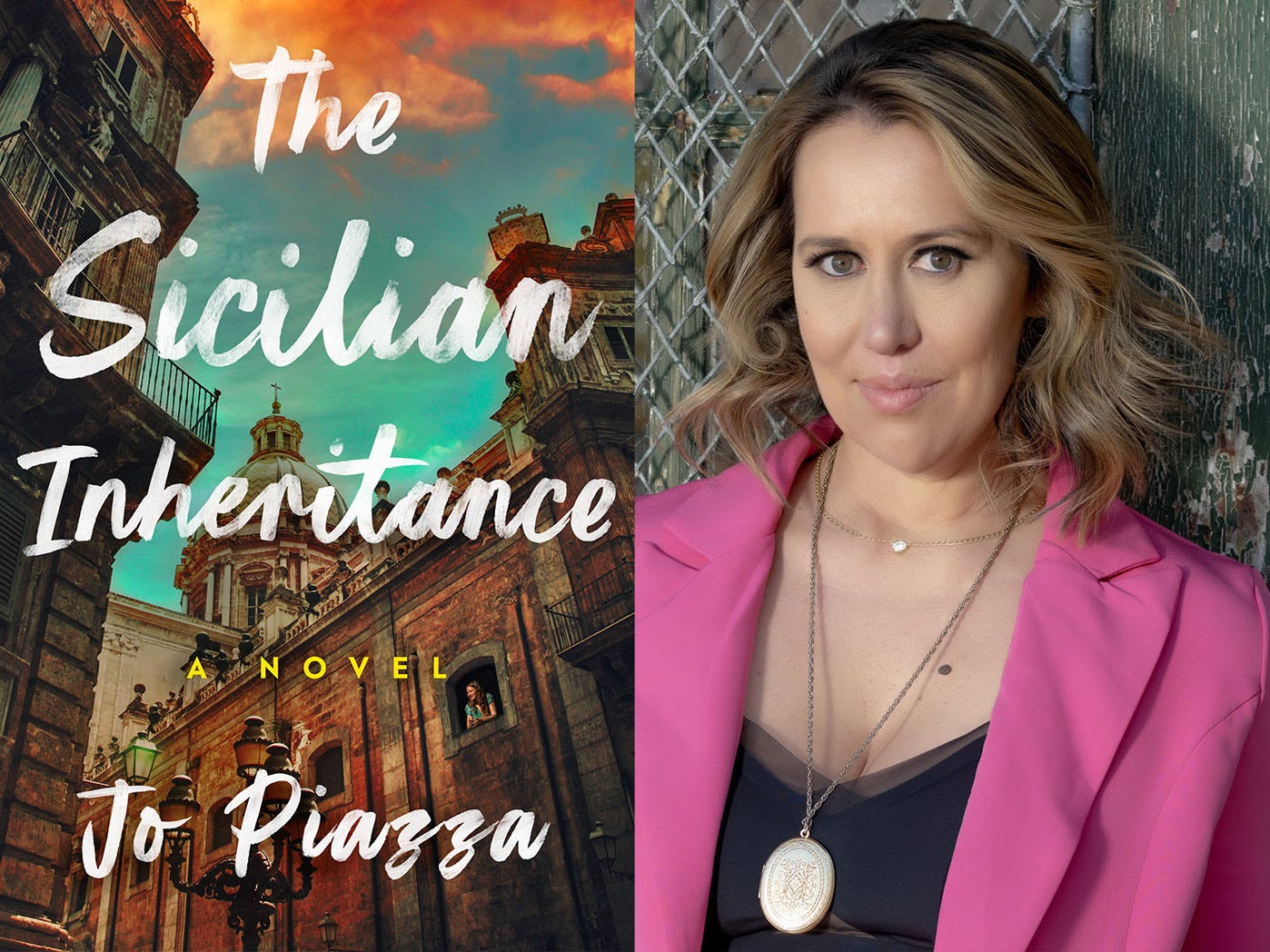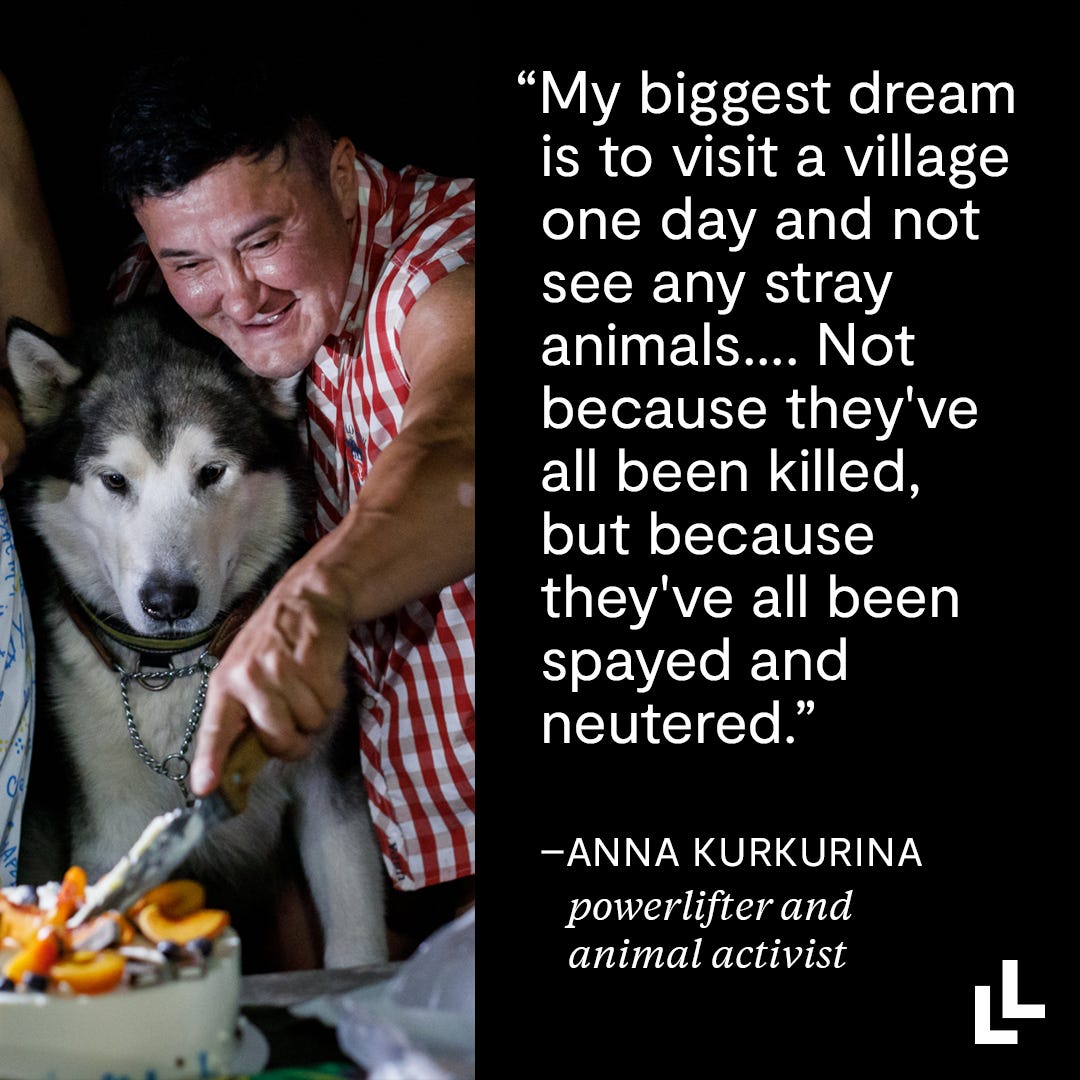Jo Piazza talks witches, Mafia and murder
The Sicilian Inheritance author shares how a true-crime investigation became a family affair, bad career advice regarding Paris Hilton, and why copy editors "hate" her.
Best-selling author and veteran journalist Jo Piazza has written a dozen books, both fiction and nonfiction. Her latest novel, The Sicilian Inheritance, is her most personal book yet, because it’s based on the real-life murder of her great-great-grandmother, Lorenza Marsala.
“My family's been passing down the story of her murder in a century-long game of telephone, where no one really knows what's true,” Piazza tells Depth Perception. “Some of them say she was killed by the Mafia. Some say that she was killed because she was a witch. The women like the witch story; the men seem to like the Mafia one.”
After she finished the novel, she says, “I really wanted to solve the murder in real life, because I’m a very thorough content creator.” So Piazza created a true crime podcast, also called The Sicilian Inheritance, in which she takes her family — she has three young kids — to Sicily as she investigates. “I describe it as White Lotus meets Only Murders in the Building meets Finding Your Roots,” she says. Piazza won’t reveal whether she solves her great-great-grandmother’s murder, but promises “a ton of bombshells.”
Recently, Piazza, who lives in Philadelphia, was kind enough to answer Depth Perception’s Leading Questions. The following interview has been edited for length and clarity. —Mark Yarm
Why did you become a journalist?
I started working as a journalist when I was in college at Penn, at our college newspaper, the Daily Pennsylvanian. I started out writing food reviews and kind of caught the bug. I interned in the Trenton [New Jersey] bureau of the New York Times when I was a senior in college and then went to Columbia for journalism school. And I really wanted to stay in New York. But the Times at the time — in the early 2000s — was like, “Go to a small town, work for a small paper and work your way up.” And I didn't want to do that.
So I took the only job I could get at a newspaper in New York, which was an assistant for the Rush & Molloy gossip column at the New York Daily News. And I knew nothing about celebrities, and they knew nothing about me. I had flashcards to try to identify all of the New York socialites, who eventually became reality television stars. I worked my way up from there to reporter, got my own column, worked as an editor, and then moved on to various different magazines and digital properties, and then into podcasting.
J-school: yea or nay?
It's such a tricky question. I think that in today’s journalism market, we need someone training journalists more than ever. When I came up in J-school, I did the part-time program. I was working at the Daily News at the same time, and I’d already been an intern and a stringer for the Times. I learned how to be a journalist by being a journalist. And I think that's the best training to be a journalist.
That said, I don't think that we have the infrastructures in place anymore — especially with so much remote work and the shutting down of so many newsrooms — to train young journalists the way that I got trained in newsrooms. So I am now leaning more towards journalism school as being a real bonus for young people.
What nonfiction work of yours are you proudest of?
I really love the book that I did about 10 years ago called If Nuns Ruled the World. It profiles feminist Catholic nuns, who are doing incredible work in places where you would not necessarily think nuns would be doing things: in shareholder activism, in abortion rights, in the elimination of nuclear weapons. And I still get emails and Instagram messages constantly from readers who really loved it.
I think it was such a beautiful example of telling a story that had not been told before. These women were largely ignored in history. And yet they were the CEOs of hospitals, and they were running entire universities. They were just doing so much good in the world, and also just so sidelined by the Catholic Church.
What work of yours do you most regret?
During Hillary Clinton’s election, I was still at the New York Daily News and was forced to do a piece on all of her bad hairstyle choices, with a sidebar on why it was ridiculous that she was wearing a scrunchie.
There were a lot of questionable things that I was asked to do by the male editors of the New York Daily News, many of which involved me having to put on a bikini. I did a day in the life of a boxing ring girl. I had to try out to be a Jets cheerleader at one point. So yeah, those were fun times, coming up the ranks as a young woman at a New York City tabloid.
Vote for “Lifting Ukraine”
Professional weightlifter Anna Kurkurina has been rescuing animals in her native Ukraine since the Russian invasion in 2022. Last year, photojournalist Maranie Staab shadowed her for Long Lead, and her photo essay “Lifting Ukraine” has been nominated for a Webby Award.
“Lifting Ukraine” is fighting for first place against industry giants including Google and National Geographic in the Webby People’s Voice Awards. Please help Long Lead’s independent journalism win in the Best Use of Photography category.
Polls are closing soon. Vote for “Lifting Ukraine” today.
What’s the best journalistic career advice you ever received?
To keep reporting — you can never have too much information. You can never do too many interviews or ask too many questions. When you think that you’re finished with an interview subject, ask one more question, because it’s usually the one that will get you the information that you didn’t know that you needed.
What’s the worst journalistic career advice you ever received?
“Make friends with Paris Hilton.” One of my editors at the New York Daily News said, “If you just make friends with Paris Hilton, you’re gonna get all of the gossip.” I did, but she’s a real pain in the ass.
What is a widely accepted journalistic rule or norm that you hate?
I actually don’t love the idea of not letting people read what you write before it goes to print. With books, because I have the leeway to do what I want, I let people read whatever they want. I think it’s one thing if you are writing about political issues or a piece that could be incredibly litigious or difficult.
There are instances where I do not think we should show people the final product. I never let anyone change anything unless it’s wrong, but for a lot of the kinds of things I’ve been doing for years, I would rather show it to someone and make sure that it’s accurate before it goes to print.
Episode two of Long Shadow: In Guns We Trust is now available. Subscribe wherever you get your podcasts, or listen below.
What’s your worst writing habit?
I don’t know how to use commas properly. Copy editors hate me. I’m real shit with commas. And I used to overdo em dashes, but I’ve gotten myself out of that.
What’s a piece of media that you wish you’d created?
Dolly Parton’s America is just a perfect example of a podcast. I love it so much. Because [host Jad Abumrad] just married really great reporting and interview skills with telling a story about the world we live in now, which is what we tried to do with the Wilder podcast.
Obviously we couldn’t talk to Laura Ingalls Wilder, but we wanted to talk about her life and her legacy, and we traveled around the country to the various places where she lived and worked. We wanted it to be a bigger story of America, and how America has changed in the years since she wrote the Little House on the Prairie series. And Dolly Parton’s America was really just a great model and inspiration for that.
What is the most indulgent media event you've ever experienced?
God, what indulgent media events have I not experienced? I mean, I was a gossip columnist in the heyday of ridiculous media events in New York.
One of the craziest ones was a launch of a Russian vodka that no one even remembers its name, but they rented out all of Liberty Island for it. And they put out these elaborate Turkish rugs and had a massive five-course dinner and vodka galore, all in the shadow of the Statue of Liberty. And then, just when you think it’s over, Duran Duran rose from a platform out in the harbor and played an entire concert — with fireworks!
What makes you think journalism is doomed?
Everything? I would say the majority of people are getting their news from social media websites. I hear people quote ridiculous misinformation to me almost every day about “news” that they saw on TikTok. The craziest one last week was when someone told me they’d taken all of their money out of their bank because all of the banks were going to shut down during the eclipse.
What makes you hopeful for the future of journalism?
It’s kind of the same thing [social media]. We have a lot of really great storytellers who can share news and information in a way that they never could before. Newspapers are so gated and difficult to work at, but we have the ability for a lot more people to be journalists. And that, to me, is helpful. I just hope that we figure out a way to set up some rules and regulations around that.
Further reading and listening from Jo Piazza
She Wants More (podcast)
“Hatched at Twitter” (Marie Claire, Feb. 12, 2019)
“The Envy of All His Friends” (The Wall Street Journal, July 29, 2011)
“The Quiet Efforts to Battle Silicon Valley’s Bro Culture” (The Wall Street Journal, Nov. 11, 2018)
“It Girl Inc.: How Much Money Social Media's Biggest Style Stars Really Make” (Marie Claire, Aug. 17, 2016)
“How I Trained My Husband to Be a Dad” (The New York Times, Oct. 4, 2018)






